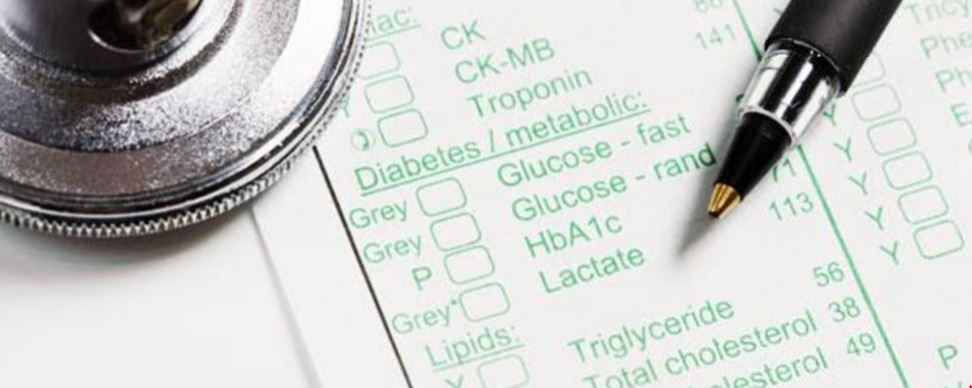
Suggestions for regular checkups are medical advice. Checkup packages are advertised but their prices are quite expensive. Besides, most packages are unnecessarily large. People do not know how much their proper checkups should cover at different stages of their life because there has not been any standard advice on the matter.
Today checkups sometimes cost more than examinations and diagnoses. For example, a private hospital charges a client as much as 15,000 baht for a heart checkup package. At a public hospital, a heart examination costs some 1,000 baht only. Checkups should both be scheduled for age ranges and occur when there is an unpleasant symptom.
Therefore, a committee on proper checkups of the Department of Medical Services takes the lead in drawing up guidelines on proper checkups for people. It works together with organizations of professionals, academic institutions and relevant organizations.
Dr Supan Srithamma, director-general of the department and chairman of the committee, said that his panel already developed guidelines on proper and essential checkups for people in compliance with the resolution of the 6th National Health Assembly on the “policy on essential and proper medical checkups for people.” The guidelines will be communicated to people in the form of a handbook and implemented initially at hospitals under the jurisdiction of the Department of Medical Services. The Ministry of Public Health will set up checkup systems for three main health funds namely the National Health Security Fund, the Social Security Fund and the Medical Benefit Fund for civil servants.
The handbook addresses three groups of people categorized by their age ranges.
1. Regarding children and adolescents, specific checkups for young children are advised particularly for many narrow age ranges such as 0-7 days; 1, 2, 4, 6, 9, 12 and 18 months; 2, 3 and 4 years; school age; and adolescence. People in each of the age ranges must be carefully checked for their development such as vision, and vaccination. For older children, there is advice on their proper checkups such as the examinations of their acne scars, tattoos, piercing holes, spinal curves, changing breasts on both males and females, vaginas — pubic hair, leukhorrea and abnormal bleeding from vaginas which indicate infection, the sizes of testicles, infection-related symptoms, hernia, ganglions and varicose veins.
2. For people at their working age, between 18 and 60 years old, they should undergo annual general checkups covering weight and height measurements to calculate their body mass index; waist measurements; blood pressure measurements for the screening of hypertension, renal disease and coronary artery disease; hearing tests; dental examinations; and breast examinations.
Besides, there should be the assessment of health risks such as dietary behaviors, the frequencies of exercises, drug abuses and sexual behaviors, as well as monthly breast self-examinations, diphtheria and tetanus vaccination, annual depression assessment for people aged 50 and over, and annual assessment of coronary artery disease.
The handbook will advise that people aged 30-39 should undergo such checkups once every three years and those aged 40 and over should do that annually. People aged 40-60 should have their eyes examined once. People aged 18-60 should have an anemia test. People aged 35 and over should have a diabetes screening every three years. People aged 20 and over should have their blood lipids checked every five years. Women aged 30 and over should undergo cervical cancer screenings every three years and people aged 50 and over should have annual screenings of colorectal cancer.
3. People aged 60 and over must undergo annual history taking which covers their vision, hearing, falls and incontinence. They must also be assessed annually for possible malnutrition, cardiovascular disease, osteoporosis and depression. Persons aged 65 years and over must be assessed for their everyday routines and possible dementia; undergo checkups; have weight, height, waist, blood pressures and heart rates measured; and have hearing, vision and oral cavity checked annually.
People aged 65 and over must have their arm lengths checked annually. Screenings for eye-related disease such as glaucoma should occur every 2-4 years for people aged 60-64 and every 1-2 years for those aged 65 and over. Screenings for diseases related to urinary tracts, diabetes, renal functions and colorectal cancer must happen annually. People aged 70 years and over must undergo screening for anemia annually. Those aged 60-75 must have their blood lipids checked every five years. Those aged 60-69 must have annual screenings for breast cancer and those aged 60-65 must undergo screenings for cervical cancer every three years.
Copies of the handbook will be published in the near future.
Source: Methawee Matchantika of Khaosod on January 13, 2016
Photo credit: www.myvmc.com
